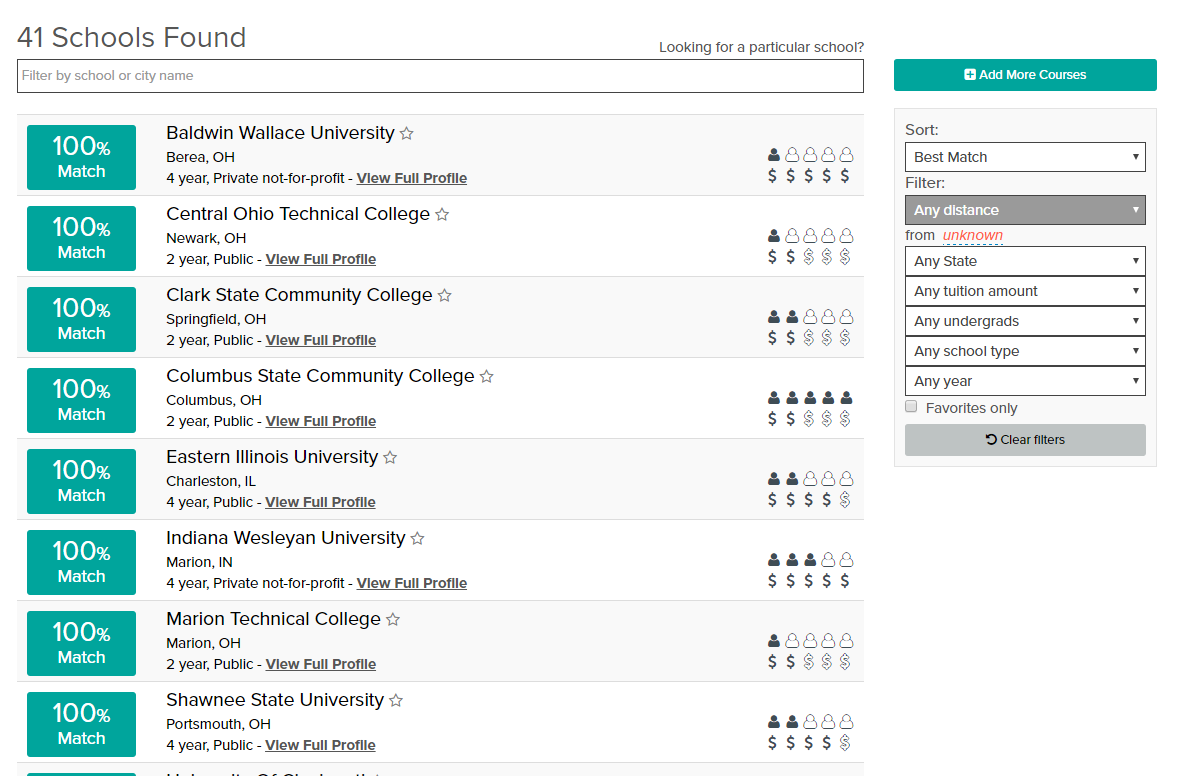Request Information
We're Sorry
There was an unexpected error with the form (your web browser was unable to retrieve some required data from our servers). This kind of error may occur if you have temporarily lost your internet connection. If you're able to verify that your internet connection is stable and the error persists, the Franklin University Help Desk is available to assist you at helpdesk@franklin.edu, 614.947.6682 (local), or 1.866.435.7006 (toll free).
Just a moment while we process your submission.

Will My College Credits Expire?
We often hear questions from students who have taken a break in their pursuit of a degree, and one goes a little like this, “It’s been 10 years since I worked on my degree at another school. Can I get any transfer credit for all that work?”
The question is a smart one. Transferring college credit may help maximize your collegiate and life experience to shorten the time you can expect to spend in the program of your choice. That said, the process of transferring to another college can be a challenging experience, and the topic of college credit expiration is often a bit of a grey area.
So will your college credits expire? And is that really what determines if they’ll transfer to your chosen program or not?
Do My College Credits Have a Shelf-Life?
Technically, the answer is no. Credits never expire. However, the likelihood that they will transfer into a program may diminish over time.
For the most part, you can assume:
Core classes are evergreen. If you’re going back to finish your undergrad degree, most standard core classes transfer easily between schools. These are the general education courses that you took as a part of your initial education.
- STEM (Science, Technology, Engineering and Math) courses have a 10-year shelf-life. This is typically because advancements in the field evolves the understanding or practical methodologies used within them. A rule of thumb: If your STEM courses are older than 10 years, they may not transfer.
- Graduate courses have a 7-year shelf-life. However, courses that are aligned to professional needs are harder to transfer in. The methodologies taught then may be considered outdated now.
- Life experience is sometimes relevant. Some programs allocate transfer credit for real-world experience. If you’ve worked in the field or industry of your degree path, it’s possibly you could earn credit for that experience. For example, Franklin offers credit for professional experience in our healthcare programs.
Keep in mind these are not exact requirements or expiration dates—different programs and institutions have varying acceptance protocols for previously completed college credit.
Look for innovative and accredited programs that will find ways to provide you with some credit, benefit, or recognition for the work you’ve already completed. Choosing these programs may make a huge difference in the amount of time (and cost) that will be required to complete your education. Do some research using the following sources during your search:
- College Transfer Net: Use this website to enter coursework from a previous college or university and find out how they could possibly transfer into credits.
- Admissions Representatives: reach out to your prospective schools’ admissions representatives. They’ll be able to help distinguish what types of additional credit/recognition the school can provide, if any.
Accelerate your completion time and lower your total tuition cost at every academic level. Download this free guide for tips on maximizing your transfer credit.
The 3 Big R’s To Determine Credit Shelf-Life
While credits won’t “expire,” you may run into some roadblocks when it comes to getting them accepted by your new school. To assess the likelihood of your earned credit transferring, take into consideration the three big R’s of your completed courses:
- Relevance. This essentially comes down to a) whether any of your courses qualify as Core Curriculum/General Education at your target school, and b) whether any of them are relevant to your proposed area of study. In many cases, past courses that aren’t necessarily relevant toward your new major could still be useful, as they could count for any electives the program requires.
- Recency. Though it is rarely written down anywhere, the truth is that some schools do impose “use by” dates for credits. These limits can range from 5 to 10 years. These are fast-developing fields in which advancements are always occurring, so coursework taken several years ago may no longer be relevant or valid today.
- Reputation. If your current or former school is not accredited, your courses will not transfer. Even if you have completed them recently. Even if they count as Core Curriculum. If your courses were not taken at an accredited institution, whether or not they will transfer becomes a moot point.
To do some initial research on credit equivalency, and get an idea of how your credits stack up in terms of relevance to your (new) major, a good place to start is Transferology (you will need to create an account, but it’s free).


For further research on credit equivalency, Individual states and universities will also often have credit equivalency information listed online.
How Do I Know What Credits I Have?
The best way to do this is to contact the school, or schools, where you completed coursework. Simply contact the registrar at your school and verify the procedure they follow. Most schools have an option to complete this online, and some programs may fax or e-fax your transcript.
However, in some instances, a written transcript may be required. In that case, just copy/paste the following template into a word doc and send to your school:
Registrar
<Name of School>
<School Address>
Date: 00/00/0000 (Month/Day/Year)
To Whom It May Concern,
Please process my request for a copy of my full transcript. I have enclosed the $00 processing fee that is required by the school. To help locate my records, I attended <school name> from [start year] to [end year]. My Social Security number is 123-45-6789 and my student ID number was 128987.
Please mail (or email) the transcript to the address as indicated below:
<Name of Recipient>
<Mailing Address> or <Email Address>
Thanking you in advance for your prompt assistance.
Yours truly,
John Doe
We suggest sending by certified mail so you can validate if and when your request was received. If you already know where you are transferring, be sure to ask your new school how they prefer to receive your transcripts and include that information in your letter (if applicable).
How do I Check the Eligibility of My College Credit?
Already know what credits or experience you have at your disposal, and want to do some initial research to see how likely it is they’ll transfer into your chosen program? Some schools provide free tools to help you determine the eligibility of your credit toward their programs. These tools can be immensely helpful in your planning process.
Franklin University, for example, designed a credit equivalency tool called myTransferCredit. You can easily input your completed courses, and the tool will generate an output of hours that could transfer over.
>Bear in mind, however, that the final decision as to which courses will be accepted will be made by the admissions department of your target university.
How can I Get Maximum Credit?
In reality, college credits never “expire.” Once you’ve completed the course, and passed, you’ll always have that achievement and knowledge. Transferring that credit, however, is dependent upon a host of circumstances and criteria.
If you want to transfer that experience to a new program, there are definitely ways that you can stack the deck in your favor. Even in cases where your coursework is 10, 20, or even 30 years old, it’s possible to be rewarded for your old college credit. The key lies in finding the institution that works with your experience—not against it.





